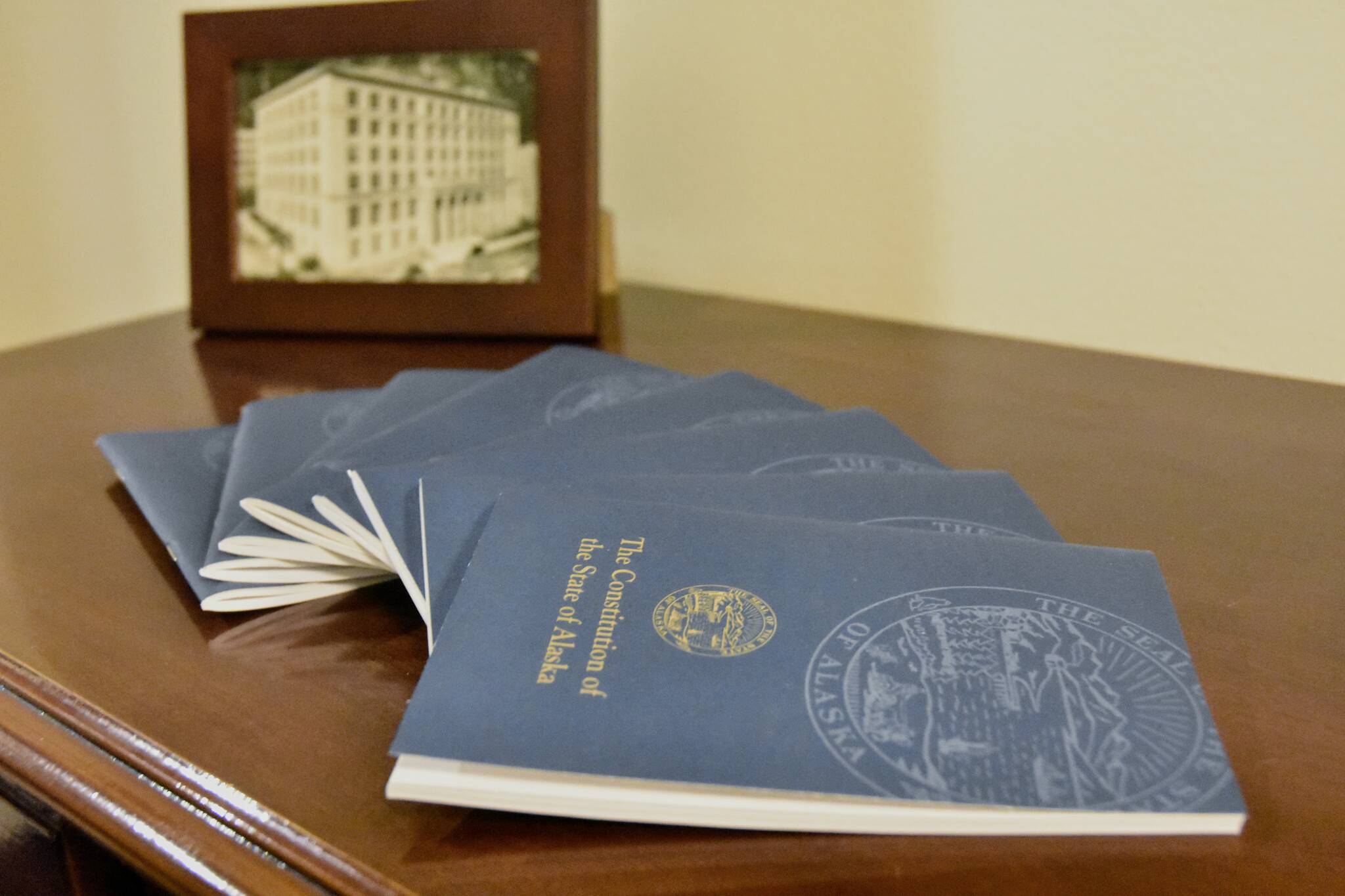This article appears in the Juneau Empire’s Guide to the 2022 Alaska State Legislature.
Legislative impasse over the past few years has led some in the state to advocate for a Constitutional Convention, an opportunity that could rewrite the state’s founding document in its entirety. Every 10 years Alaskans are asked if a convention should be held, and so far in the state’s history, that question has been strongly opposed by voters.
But with increasing frustration over the Permanent Fund Dividend, some in the state have suggested holding a convention may be the answer. However, a bipartisan coalition has formed to oppose that idea, arguing the process would be costly and time-consuming and potentially change the entire nature of the state.
Alaskans will be asked the question in the fall, and during the summer’s many special legislative sessions, some lawmakers suggested that not resolving disputes regarding the PFD would lead voters to seek a convention. Gov. Mike Dunleavy and several lawmakers have submitted amendments to the state constitution that would constitutionalize the dividend, but none of those bills have yet to pass. Even if a constitutional amendment bill did pass the Legislature, it would then have to be approved by voters.
If a convention is called, Alaskans will then have to elect delegates who will meet with the ability to change every part of the constitution, something opponents of the idea say could lead to unintended consequences. That process could take several years and cost millions of dollars to facilitate, according to a financial analysis done by Sen. Gary Stevens, R-Kodiak. The final product of the convention would still be subject to a vote of the people.
The group formed to oppose the convention — Defend Our Constitution — argues that the deep political divisions in the state would make the process fraught.
“In my mind, the list of issues which may be considered and acted upon are unpredictable,” wrote Bill Corbus, a Juneau resident, a co-chair of Defend our Constitution and a former commissioner of revenue, in an opinion piece published by the Empire. “Changes to the state constitution may not produce the expected results and unintended consequences maybe ultimately prevail.”
In addition to the dividend, issues like judicial selection and education funding could also be changed. Currently, Alaska’s judges must be approved by the Alaska Bar Association and the constitution requires the state to fund public education that is secular.
J.H. Snider, a political scientist who studies state constitutional conventions, argues that lawmakers themselves almost always oppose conventions as they can sidestep the legislative process for reforming a constitution.
In an interview with the Empire, Snider said lawmakers tend to be very jealous of their ability to refine the constitution and are typically wary of efforts that are outside their control. But according to Snider, constitutional conventions can increase democracy by giving power to delegates who are not part of the political system.
“This institution should be thought of today as a vehicle for amendments,” Snider said. “It should deal with the Legislative bypass mechanism.”
Snider noted the public has three chances to weigh in on a constitutional convention: voting for it, voting for the delegates and voting to approve or disapprove of the constitutional changes.
According to the state constitution, “the call shall conform as nearly as possible to the act calling the Alaska Constitutional Convention of 1955, including, but not limited to, number of members, districts, election and certification of delegates, and submission and ratification of revisions and ordinances. The appropriation provisions of the call shall be self-executing and shall constitute a first claim on the state treasury.”
The 1955 convention had 55 delegates and lasted 76 days, according to a University of Alaska Fairbanks history of the convention.
Alaskans will be asked whether to hold a constitutional convention on the Nov. 8 ballot.
Contact reporter Peter Segall at psegall@juneauempire.com. Follow him on Twitter at @SegallJnuEmpire.


